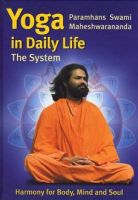Pravritti and Nivritti
Two Ways of Life
PRAVRITTI means to live amidst worldly duties and interests with the senses and actions directed primarily towards the external world.
NIVRITTI, on the other hand, is the path of “turning back”, the path of turning within towards spiritual contemplation, and placing God at the centre of our existence after fulfilling our familial and professional duties.
For as long as we live in Pravritti our thoughts turn mainly towards worldly things – to pleasure and hobbies and worrying about position, income and possessions. Initially school and education occupy our thoughts, then later profession and family. Finally, in old age we worry about our health and our inheritance.
So that there are no misconceptions I would like to clarify this. It is proper and necessary for us to fulfil our responsibilities and duties to our family and society, and there is a no problem with being comfortable or prosperous. But those people who care about nothing and are totally wrapped up in MĀYĀ , and constantly run after it, behave irrationally and short-sightedly. In the belief that it is absolutely essential to “create” something their efforts are persistently directed outwards. One car after another, new things constantly bought and accumulated – these are clear signs that the inner Self has still not had enough. And in spite of all the disappointments and failures is not yet “fed-up”.
We make a big mistake when we think our supreme goal in life is to experience and enjoy the world. What does enjoyment mean? A wise person knows that desires are never-ending. We are constantly hungry and thirsty, even if we have just eaten well. No worldly pleasures satisfy us forever. Desire soon rises anew. Only something long lasting and unchanging is able to give us true satisfaction. That which changes is unreal – only the eternal and unchanging Self is real.
If we follow one path we will inevitably reach where that path leads. When we turn our mind too much towards the outer world we lose contact with our inner world and to God. Therefore the only way out of MĀYĀ is through NIVRITTI.
When the children are grown we should hand over to them all our acquired possessions and gradually withdraw from active work. As we keep the mind free of worldly desires and turn towards God, “Nivritti” should predominate, not just externally but more importantly inwardly. Neither money nor possessions make us inwardly rich - rather, true wealth lies in a peaceful heart and contentment. Only in Nivritti can the soul permanently quench its thirst for happiness and knowledge.
One day every human will attain perfection; though many may need several life cycles. The two ways of life described here are like two branches of a tree. The Pravritti branch bends down towards the world, whereas the Nivritti branch goes upwards towards divine consciousness.
Love and yearning for the Supreme Self develops once the consciousness has reached an appropriate stage. Just as the field of a farmer must be prepared before sowing, the consciousness also needs much preparatory work. It can take years, or even many lifetimes, before the seeds of spirituality emerge. To recognise at which level you are, and whether or not you will be able to reach the goal in this lifetime, ask your own heart. Books are unable to give an answer to this. At best you can evaluate your own qualities.
Spiritually minded people prefer SATSANG, the company of people who inspire goodness and truthfulness, whereas people who are still laden with many Karmas are more attracted to Māyā. Very little of their time, if any, is occupied by spiritual matters with most of their time being dedicated to material interests and pleasures. A further symptom of spiritual immaturity is an unsettled and changeable mind – always making new resolutions and giving up again when facing the slightest obstacle. All too often it happens that after practising for some time an aspirant becomes discouraged and doubts the outcome. The path to truth is lined with failures and disappointments as we recognise the inappropriateness of many of our ideas and must discard them one after the other. That is why you can only achieve success if you show firm resolution, unwavering perseverance and have an unshakeable will.
One day all Karmas will be cleared, therefore we should allow nothing and no-one to discourage us. Continue to strive patiently and constantly even if your initial expectations are not fulfilled. Only those who stay on the path and go on with unwavering faith, patience and steadfastness are able to realise the spiritual goal in this life with the guidance and help of the Master.
Do not wait until it is too late. One day life ends, and with it the chance to achieve something. There is a very illuminating story about this:
A Mahārāja by the name of Jaswant Singh once lived in Jodhpur. He was a learned, wise and spiritual ruler, as well as being well-advanced in Yoga. Besides government business he performed his Yoga exercises daily and was punctual with his meditation. He lived a truly exemplary life.
One day he decided to find out if his closest colleagues and confidantes were truly devoted to him. Often it is difficult to know whether someone is merely saying beautiful words or if they are speaking honestly from the heart. So Jaswant Singh devised a test to see how far he could trust his Ministers and officials.
He called his closest Ministers to him and asked them if they would fulfil one wish for him. The ministers assured him assiduously that they would do anything for him, even if it cost them their lives. The Mahārāja said: “My request is that when I die all the jewellery and jewels that I am wearing on my body at that time be distributed amongst the poor.”
One of the ministers stepped forward and begged: “Do not speak of your death, O King. May you live for a thousand years.” The Mahārāja replied: “Please accept my gratitude for your good wishes. But nobody lives forever, and no-one knows the day and hour when he must say goodbye.” The ministers then vowed that they would carry out all of the Mahārāja’s instructions, and soon forgot the whole affair.
Two weeks later the Mahārāja decided to carry out the test. He possessed the ability to enter the state of Samādhi any time at will. In Samādhi superficially the body appears to be dead. Heartbeat and pulse appear to have stopped completely and the breath is almost totally suspended. But the senses are fully intact and one is able to hear and see everything.
And so the Mahārāja feigned a heart attack and entered Samādhi. The doctor, who was summoned immediately, pronounced him dead. The ministers stood around the bed of the supposedly deceased ruler filled with consternation. Finally they began to remove his rings, necklaces and bracelets. One of them asked: “What should be done with the jewellery now? Our master wished us to distribute it to the poor of this country.” But the Prime Minister vehemently contradicted him: “That doesn’t come into the question at all. In their stupidity kings think that we fulfil their wishes, but we, the ministers, are the real sovereigns. Outwardly we bow and approve of everything, but what actually happens is determined by us.
Several ministers agreed with him, but others had misgivings and said: “We should fulfil the last wish of the king. It would be a serious sin not to do this.” The Prime Minister actually laughed at them, but to reassure them he made the following proposal: “I know how we can fulfil his last wish and avoid any disadvantage to ourselves. We will have cheap imitations of the pieces of jewellery produced. We can then give those away and thus fulfil our promise.
The Mahārāja had heard enough. He came back from Samādhi, sat up in bed and loudly sang OM. The ministers froze in fright; however, the Prime Minister quickly got a hold of himself, raised his arms and cried: “God be praised, our beloved Master is alive!” The Mahārāja merely said: “Stop the undignified theatre. I overheard everything and know exactly how you follow my orders and keep your promises.”
On the same day he distributed his jewellery to the poor with his own hands and divided landholdings amongst the farmers and ashrams . Many families, and also many ashrams, still have the property given to them on that day.
Mahārāja Jaswant Singh left a diary that has been handed down to us. The last sentence says: “Yours is only that which you accomplish with your own hands. Everything that you spend on pleasure and feasting is lost. Only what you have done for others is really your property. After your death you cannot produce any more. Therefore do immediately everything you intend to do.”
This story has several meanings. Firstly, it shows how easily people allow themselves to be led astray by power and possessions; secondly, it reminds us not to put off our good intentions, but to carry them out immediately; thirdly, it instructs us not to rely on others, and to do ourselves whatever it is we would like to accomplish.
Do not look back; what was yesterday is gone. Work towards whatever you would like to achieve unwaveringly, and continue to practise. To those who have attained wisdom it is clear that Māyā is an erratic partner, one day bringing something pleasant and the next day something unpleasant. Accept both with equanimity. In worldly life external and inner disturbances will always continue to appear. Therefore, endeavour to maintain your inner harmony through constant practice and self-discipline.
It is recommended that you dedicate at least one to two hours of the day to spiritual practice and meditation. The place for meditation should be kept as free of Māyā and Pravritti as possible and only used for practising Yoga. On the other hand, you should not overdo the “retreat from the world”. Under no circumstances allow your duties to family or society to be neglected, and if someone needs help it is our duty to help.
Move within Māyā like a tightrope walker performing his art in front of a crowd. He delights the people with his performance, but does not allow their cheering, applause or laughter to distract him even for a second; he gives his undivided attention and concentration to his steps upon the rope.
Sri Kabīrdās said in one of his poems:
“Māyā is an artful deceiver. Treat her with great care because you never know in which form and in which way she seeks to tempt you.”
Therefore go attentively and cautiously through the world, just as you would if you were walking through a coalmine in pure white clothes. Avoid any inadvertent contact otherwise you could all too easily end up with black stains on your clothing.
As human beings we have numerous powers and abilities within us. Most people, however, are not conscious of them and are therefore unable to use them advantageously. They behave like one who has carelessly thrown away a valuable diamond thinking that it was a piece of worthless glass. Always be conscious that this human life is priceless. We can buy almost everything with money, but not life. Not even for a billion dollars are we able to delay death for a fraction of a second when the time of our earthly life has run out. Therefore make use of every minute of your existence and decide upon the spiritual path.


